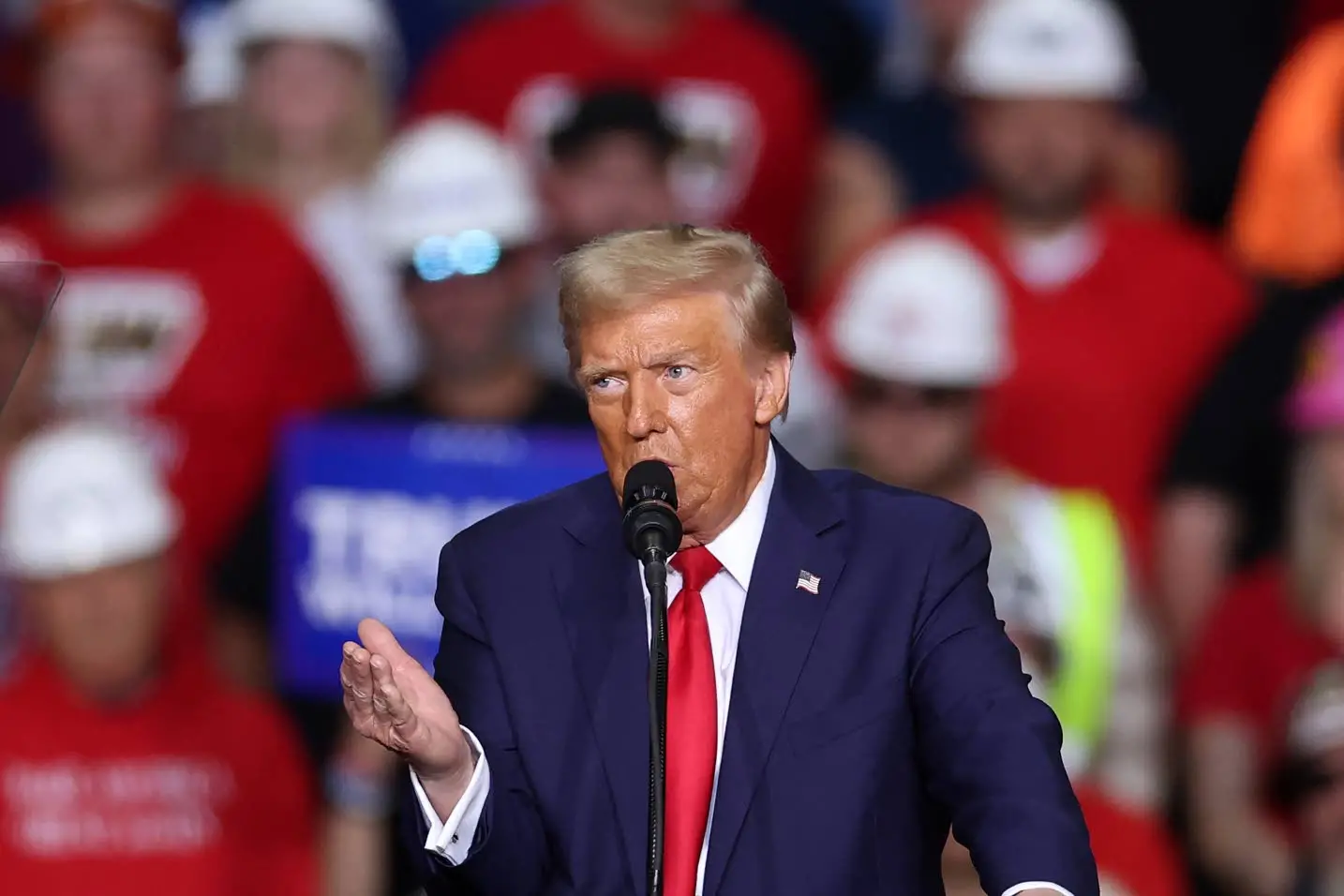
Deliver or perish!
The year 2024 was a year of elections globally. Without exception, electorates worldwide are anxiously expecting that in 2025 ruling political parties will deliver on the promises that were made on the political stump. Political parties that do not deliver consistent with promises will go to the wall, fast.
Globally, democracy is on trial for, among other things, failure to deliver required economic and social goods to especially those who I described here previously as the hurting classes. If democracy is not acquitted there will be near catastrophic political, social, and economic results worldwide.
It bears repeating, the hurting classes, as I see it, include those who see absolutely no hope of being better off, socially and economically, than their parents. Some will dismissively say, “Oh, but those have always existed.” They are correct. What is very different today, however, is the unprecedented numbers of people globally who see the current social, political, and economic structures as forces which systematically retard and/or destroy human potential. When the aspirational quotient of a human being is destroyed a savage beast is born.
Some will doubtless accuse me of being alarmist. They can choose to be like the proverbial ostrich with its head buried deep in the sand if they want. But foolish and/or convenient denials will not change the fact that political, social, and economic gravity exist. Or the fact that negative populism is rapidly gaining support, especially among males, in many countries in Europe, significant parts of South America, particularly, Brazil and Argentina, some sections of Africa, in the United States of America — think Donald Trump — the United Kingdom, and Canada. America, Britain and Canada are our major trading partners.
The fact is, employing denials as convenient defence mechanisms will not alter the reality that people, especially young people globally, are sick and tired of being sick and tired with politics which reinforces the status quo and, by so doing, render millions poorer, weaker, and less respected.
Fancy denials will not change the reality either. Negative social liberalism, or what is commonly called the Woke Agenda, is now on the ropes. The pushback and/or rejection, globally, is palpable.
Folks globally want material results from their elected and selected leaders which can reinvigorate their aspirational quotients. They want tangible results which can be felt in the pockets and seen on dinner tables. Anything which fails to meet those and related criteria are being spat upon and rejected, swiftly, globally.
Here is a case in point: The British Labour Party (BLP), a fraternal party of the People’s National Party (PNP), won 411 of the 650 seats in the House of Commons in the UK’s general election last July. This was the BLP’s biggest parliamentary majority in 192 years. The BLP and its leader, Sir Keir Starmer, required 326 seats for an outright majority.
Consider this: The Conservative Party, or Tories, a sister party of the Jamaica Labour Party (JLP), “suffered a dramatic collapse after a tumultuous 14 years in power, which saw five different prime ministers run the country. It lost 250 seats over the course of a devastating night” (British Broadcasting Corporation [BBC], July 5, 2024). In accepting defeat, departing prime minister, a very dejected Rishi Sunak, speaking outside 10 Downing Street for the last time, said: “I have heard your anger, disappointment, and I take responsibility for this loss.” (Sky News, July 5, 2024) Consistent with British political traditions, Sunak indicated that he would resign as party leader as soon as the required arrangements were set in place.
Sir Keir, on the other hand, was justifiably beaming from ear to ear. He said, among other things, as he addressed the nation from 10 Downing Street for the first time as prime minister: “My Government will serve you; politics can be a force for good. Our country has voted decisively for change, for national renewal, and a return of politics to public service. Our work is urgent and we begin it today.” (
Sky News, July 5, 2024)
“Change begins now,” Starmer later told the media and the British people. They took him at his word, as they should.
Here is where the rubber hits the road. Prior to the July 4, 2024 General Election, Starmer had made a trailer-load of promises. By and large, what the Brits have got to date is a trailer-load of excuses and tax increases.
Fast-forward to today, and consider this, up to the time of writing just over 3 million Brits had signed an e-petition calling for a fresh general election in the UK. The signatures are being added fast and furious. Britain’s Petitions Committee has agreed to a debate. That debate will start in Westminster Hall on January 6, 2025; that’s tomorrow. The petition’s author says: “I believe the current Labour Government has gone back on the promises they laid out in the lead-up to the last election.”
In the meantime, Starmer’s Administration has “rejected calls for a general election and said the Government would “continue to deliver the manifesto of change that it was elected on” (House of Commons Library, December 17, 2024).
“What can go so,” some might be wondering. The answer to me is simple. People want results that will materially make their lives better vis-à-vis promises made in the run-up to a general election. And they don’t want to hear excuses when a party gets into office, either. As soon as folks realise that you are not delivering and/or are unlikely to do so, they will throw you onto the political scrap heap.
“Are the British people really serious,” some might ask. A recent poll in voting intentions done by the reputable market research agency Find Out Now puts the Conservatives on 26 per cent, Reform UK on 24 per cent, and Labour on 23 per cent. Interestingly, Reform UK won only five seats in the general election last July. Formerly the Brexit Party, Reform UK, is a right-ring populist party led by Nigel Farage.
And here is a shocker: Last week The Sunday Times UK released a poll which showed that the BLP would cede 200 seats if a general election were held at the time the poll was done.
Ponder this too: “Membership of Britain’s upstart anti-immigration Reform UK party has overtaken that of the centre-right Conservative Party for the first time, the party said Thursday, as Tories disputed the numbers.” (AFP, December 26, 2024)
The top three rungs of the UK’s party popularity ladder were held by the Tories, Labour, and the Liberal Party alternately for just over 200 years. What is happening in the UK is similar to political happenings in many other countries.
“Oh, what is happening in Britain and other countries could never happen in Jamaica,” some might bellow. They had better wake up and smell the coffee. No leader political or otherwise is bulletproof.
Recall, for example, that in 2016, while campaigning in Iowa, Donald Trump, said: “I could stand in the middle of Fifth Avenue and shoot somebody and I wouldn’t lose any voters, OK?” Trump might very still, think he is politically invincible. I am willing to bet that if he does not materially deliver on his most recent promises, he will go to the wall, and fast.
INCUMBENCY CURSE?
Perhaps the Democrats in America can feel a sense of consolation that they were one of numerous incumbents and mighty, traditional parties, globally, that were kicked to the curb by their electorate. Many go-to political texts describe incumbency as a significant advantage. The strength/validity of that long-held designation regarding ruling political parties was severely tested and definitively weakened in 2024.
On that score, The Pew Research Center, one of the most trusted sources of verifiable data globally, in an insightful piece titled ‘Global Elections in 2024: What we learned in a year of political disruption’, noted among other things: “2024 was a remarkable year for elections, as voters in more than 60 countries went to the polls. It also turned out to be a difficult year for incumbents and traditional political parties. Rattled by rising prices, divided over cultural issues, and angry at the political status quo, voters in many countries sent a message of frustration.”
Those who believe that being entrusted with the privilege of elected and/or selected office makes them kings of the hill should also put this reality in their pipes and smoke it. Every one of the 60 incumbents mentioned went backwards. Why?
Consider this from the mentioned Pew Research Center: “A survey we conducted in 34 countries earlier this year illustrated the extent of global economic gloom. Across these nations, a median of 64 per cent of adults said their national economy was in bad shape. In several nations that held elections in 2024, including France, Japan, South Africa, South Korea, and the UK, more than seven-in-10 expressed this view.
“Inflation was an especially important issue in this year’s elections, although economic concerns were prevalent in many countries before the post-pandemic wave of global price increases. The past two decades have seen financial crises, the Great Recession, the COVID-19 economic downturn, inflation, and ongoing economic inequality — all of which may have shaped the mood in nations around the globe.
“But the economy wasn’t the only thing driving voter discontent. Our global surveys over the past few years have highlighted a broader frustration with the functioning of representative democracy. Across 31 nations we surveyed in 2024, a median of 54 per cent of adults were dissatisfied with the way democracy is working in their country. And, in several high-income nations, dissatisfaction has increased significantly over the past three years.
“Our surveys have shown that many people feel disconnected from political leaders and institutions. Large majorities in many nations believe elected officials don’t care what people like them think. Many say there is no political party that represents their views well. And large shares say people like them have little or no influence on politics in their country.” (Pew Research Center, December 11, 2024)
Jamaica will hold her 19th parliamentary election this year. These global happenings should serve as warnings. The message is clear: Deliver or perish!
RESULTS, LESS RHETORIC
Lyndon Baines Johnson, as I see it, is one of the most consequential presidents of America. On the occasion of his landslide victory in 1964 he famously said, among other things, in his inaugural speech: “What the man in the streets wants is not a big debate on fundamental issues. He wants a little medical care. He wants a rug on the floor. He wants a picture on the wall, a little music in the house, and a place to take Molly and the grandchildren when he gets home.” This was the kind of empathetic thinking which inspired President Johnson’s Great Society. The Great Society was an ambitious series of policy initiatives, legislation, and programmes with the main goals of ending poverty, reducing crime, abolishing inequality and improving the environment. Politics must centre on doing material things to make especially ordinary people’s lives measurably better. Act accordingly and break the curse of incumbency.
Happy New Year, everyone!
Garfield Higgins is an educator and journalist. Send comments to the Jamaica Observer or higgins160@yahoo.com.

UK Prime Minister Sir Keir Starmer.

TRUMP… vowed to deport millions of undocumented immigrants if he was successful in presidential race























